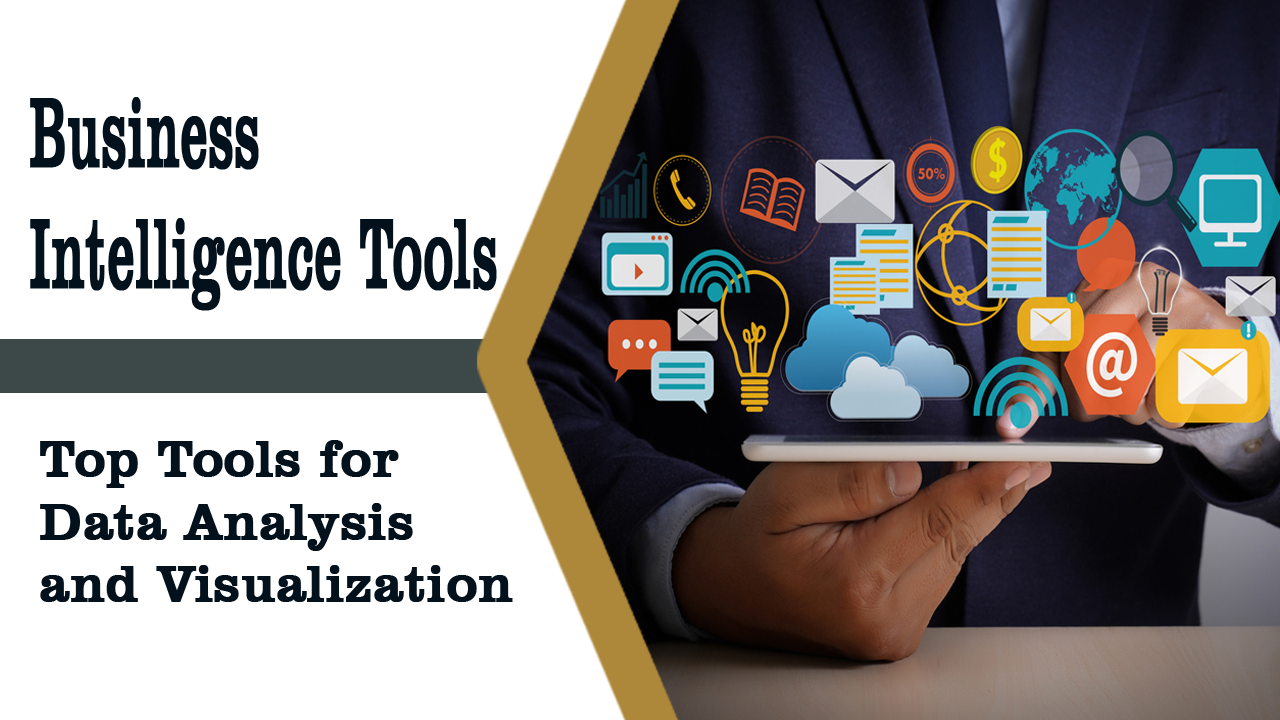Overview of Business Intelligence
Business intelligence (BI) is the use of data analysis and visualization tools to gain insights into business operations and make informed decisions. BI tools provide a range of capabilities, including data integration, data warehousing, data mining, and reporting.
BI tools can help organizations to identify trends, track performance, and make predictions based on historical data. The top BI tools provide powerful data visualization capabilities that allow users to create interactive charts, graphs, and dashboards to communicate insights to stakeholders.

Top Business Intelligence Tools
- Tableau: Tableau is a powerful data visualization tool that allows users to create interactive charts, graphs, and dashboards from a variety of data sources. It is highly user-friendly and does not require extensive programming knowledge, making it accessible to a wide range of users.
- Power BI: Power BI is a business analytics service provided by Microsoft that allows users to create interactive visualizations and reports from a variety of data sources. It is highly scalable and can handle large amounts of data.
- QlikView: QlikView is a business intelligence software that provides powerful data visualization and analysis capabilities. It allows users to create interactive dashboards and reports from a variety of data sources.
- SAP Business Objects: SAP Business Objects is a suite of business intelligence tools that provides a range of capabilities, including data integration, data warehousing, and reporting. It is highly scalable and can handle large amounts of data.
- IBM Cognos Analytics: IBM Cognos Analytics is a powerful business intelligence tool that provides a range of capabilities, including data integration, data warehousing, and reporting. It is highly scalable and can handle large amounts of data.
Benefits of Business Intelligence Tools
Business intelligence tools provide a range of benefits for organizations looking to gain insights from their data. Some of these benefits include:
- Improved decision-making: BI tools can help organizations to make informed decisions based on historical data and predictions.
- Increased efficiency: BI tools can help organizations to identify inefficiencies and areas for improvement in their operations.
- Cost savings: BI tools can help organizations to identify cost savings opportunities and optimize their operations.
- Better communication: BI tools provide powerful visualization capabilities that allow users to communicate insights to stakeholders in a clear and concise manner.
Factors to Consider When Choosing a Business Intelligence Tool
When choosing a business intelligence tool, there are several factors to consider. Some of these factors include:
- Scalability: The tool should be able to handle large amounts of data and meet future needs.
- Ease of use: The tool should be user-friendly and easy to use, particularly for those who do not have extensive programming knowledge.
- Cost: The cost of the tool is an important consideration, particularly for small and medium-sized businesses.
- Integration: The tool should be able to integrate with existing infrastructure and software to minimize disruption.
- Support: The tool provider should provide adequate support, including documentation and tutorials, to help users get started and troubleshoot any issues.
Business intelligence tools provide powerful capabilities for analyzing and visualizing data to gain insights into business operations. The top BI tools include Tableau, Power BI, QlikView, SAP Business Objects, and IBM Cognos Analytics. When choosing a BI tool, consider factors such as scalability, ease of use, cost, and integration with existing infrastructure. With the right tool and expertise, organizations can leverage their data to drive better decision-making and improve their overall performance.
